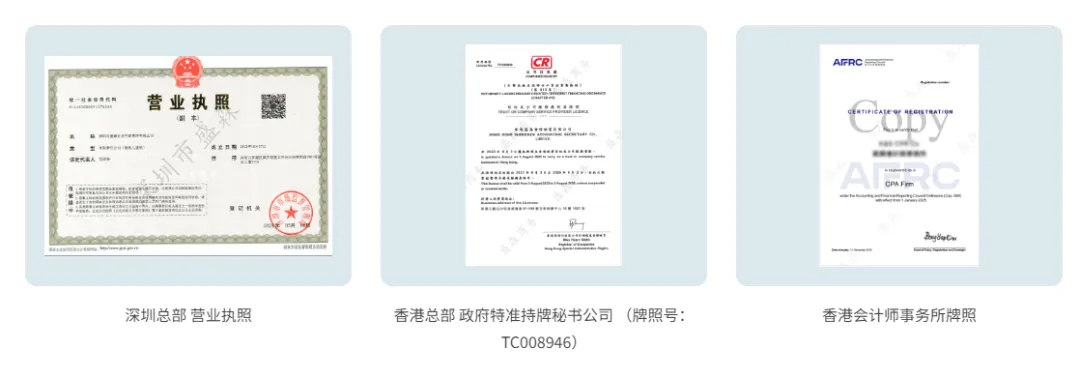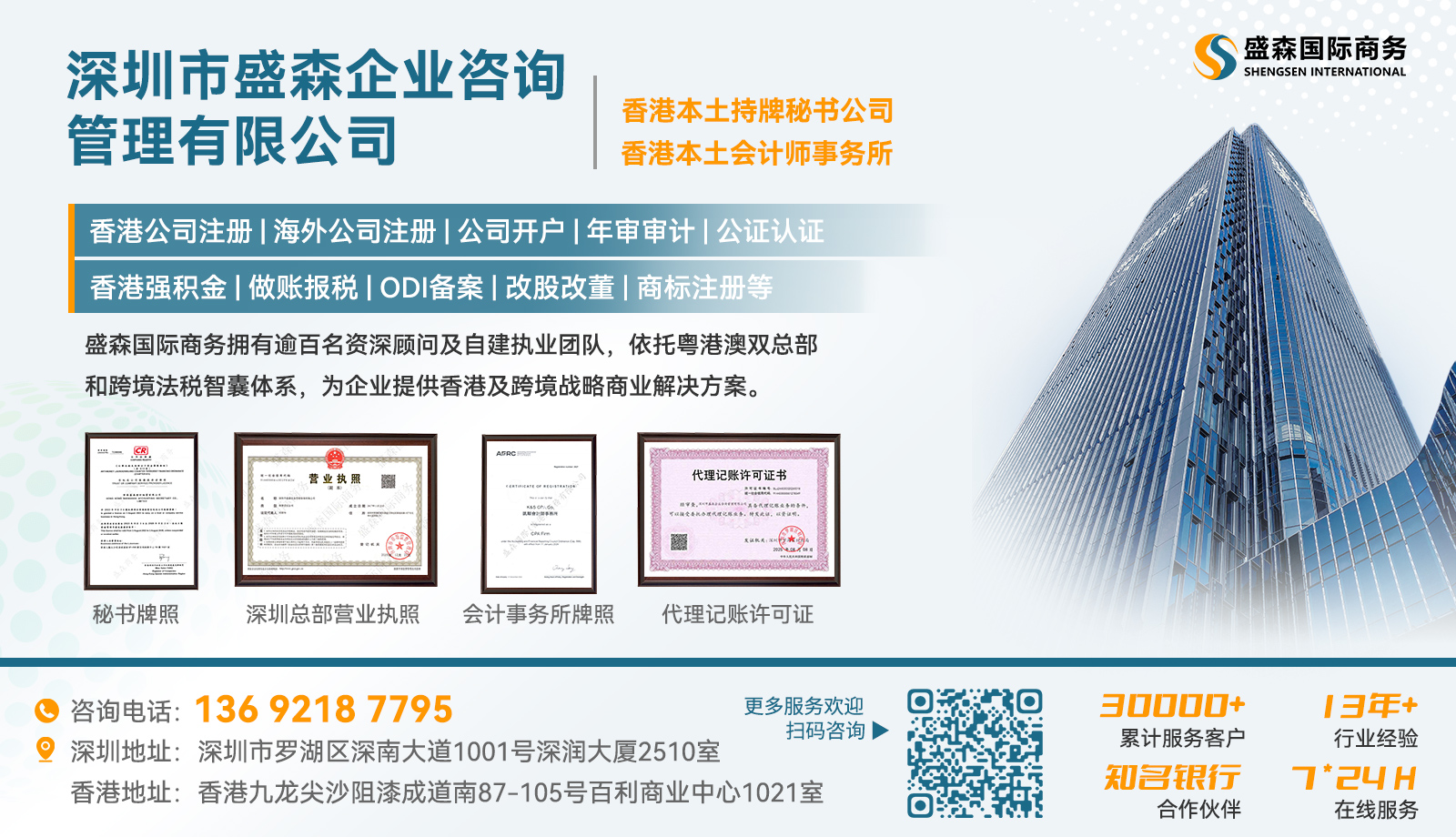2025 Hong Kong Offshore Exemption New Regulations Compliance Guide: Tax-saving Logic, Application Requirements and Full Process Practical Operations
As the world's third largest financial center, Hong Kong has always been the first choice for mainland enterprises to go to sea with low tax rates, free foreign exchange control and convenient international transportation network. In 2025, Hong Kong further optimized its registration policy. The registered capital was reduced to a minimum of HK$1 without payment. Electronic approval was accelerated to 1-3 working days to provide a more efficient business environment for entrepreneurs.
Materials required for Hong Kong company registration
- Company name: Chinese and English name, Chinese ends with "limited" and English ends with "limited".
- Identity certificates of shareholders and directors: scanned copies of ID cards or passports, proof of address in the past 3 months (water and electricity bills, bank bills, etc.).
- Scope of business: Chinese should be within 28 characters, and English should be within 60 characters.
- Registered address: The real address in Hong Kong is required, and the mailbox or virtual address is not accepted.
- Legal Secretary: A legal secretary shall be appointed, who can be a permanent resident of Hong Kong or register a company in Hong Kong and be responsible for communicating with government departments.
- Registered capital: The standard amount is HK$10,000 (no capital verification, subscription system). You can freely set a higher amount (no upper limit), but if it is too high, it may increase the equity transfer tax.

Hong Kong company registration process
1. Determine the company name:Prepare 2-3 Chinese and English names, which end with "limited" in Chinese and "limited" in English, and check through the official website of the Hong Kong Companies Registry to ensure that the names are not occupied and do not have sensitive words.
2. Prepare registration materials:
Including proof of shareholders and directors' identity, proof of registered address, company secretarial appointment, articles of association, etc.
3. Submit an application for registration:
Applications can be submitted electronically through the e-service website of the Hong Kong Companies Registry, or paper applications can be submitted in person at the Companies Registry.
4. Payment of registration official fees:
Registration certificate + business registration certificate fee.
5. To receive the certificate:
After approval, the Company Registration Certificate and the Business Registration Certificate will be obtained, marking the official establishment of the company.
6. Making company seals and legal documents:
Including the company's steel seal, signature seal, articles of association, stock books, accounting records, etc.

Frequently Asked Questions (high-frequency questions from entrepreneurs)
Q1: Do shareholders and directors have to be Hong Kong residents?A: No, nationality is not limited, but the director must be a natural person over 18 years of age.
Q2: Does the registered capital of 1 Hong Kong dollar affect the company's reputation?
A: It does not affect that the registered capital of a Hong Kong company is not disclosed, and the liability of shareholders is assumed in proportion to the share holdings.
Q3: If I don't operate after registration, do I need to cancel it? What are the consequences of not canceling?
A: If you don't operate, it is recommended to cancel it in time. If left unincorporated, there will be a fine (more than 10,000 Hong Kong dollars for 6 months overdue) and the directors may be included in the list of dishonet, affecting subsequent entry into Hong Kong or the registration of a new company.
Q4: How long will it take to start operating after registration?
A: You can start business by getting the registration certificate, but it is recommended to complete bank account opening and tax registration at the same time.
From industrial and commercial registration to financial and tax audit, from legal support to secretarial services, professional qualification endorsement allows each service to have rules to follow, and build a strong line of compliance defense for overseas enterprises to operate globally.










